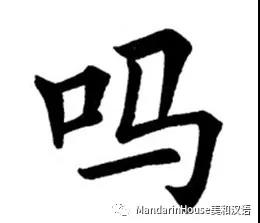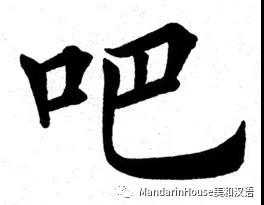In Chinese language, 吗 and 吧 are two common sentence particle in Chinese grammar that both can turn a statement into a question when added to the end of sentences.
They have some similarity in that both can be used to ask questions, but they are quite distinct in their uses. Today, we can learn how to use both of these sentence particles correctly.

How to use the 吗
吗 is places at the end of a sentence to turn it into a yes/no questions. This type of question is also known as a polar question or binary question that means that the question can only be answered with “yes” or “no”.
1. 他的名字是小明吗?
tā de míngzì shì xiǎomíng ma?
Is his name Xiaoming?
2. 请问一下,这个是李老师的号码吗?
qǐngwèn yīxià, zhège shì lǐ lǎoshī de hàomǎ ma?
Excuse me, is this the number of Mr. Li?
3. 你喜欢游泳吗?
nǐ xǐhuān yóuyǒng ma?
Do you like swimming?
As you can see above, 吗 is easy to use as a sentence particle. You just simply place it after a statement and it turns into a yes/no question.


How to use the 吧
吧 is used at the end of imperative sentences to indicate suggestion, request, command and so on. And also as a tag question to ask for confirmation with what is being said》
To mark commands, request and suggestions in a polite way.
1. 我们去吃饭吧!
wǒmen qù chīfàn ba!
Let’s eat
2. 走路慢点吧
zǒulù màn diǎn ba
Could you walk slowly?
3. 我们去那边坐坐吧
wǒmen qù nà biān zuò zuò ba
Let’s go there and sit down.
To mark tag questions
1. 你的名字是小明吧?
nǐ de míngzì shì xiǎomíng ba?
Your name is Xiao Ming,right?
2. 请问一下, 这是李老师的电话号码吧?
qǐngwèn yīxià, zhè shì lǐ lǎoshī de diànhuà hàomǎ ba?
Excuse me, this is the number of Mr. Li, right?
3. 你喜欢游泳吧?
nǐ xǐhuān yóuyǒng ba?
You like swimming, don’t you?
As you can see above, 吗and吧 are similar in some ways but definitely not the same. 吧is for softening commands, requests, questions and suggestions. While 吗 is simply for turning statements into yes/no questions.


